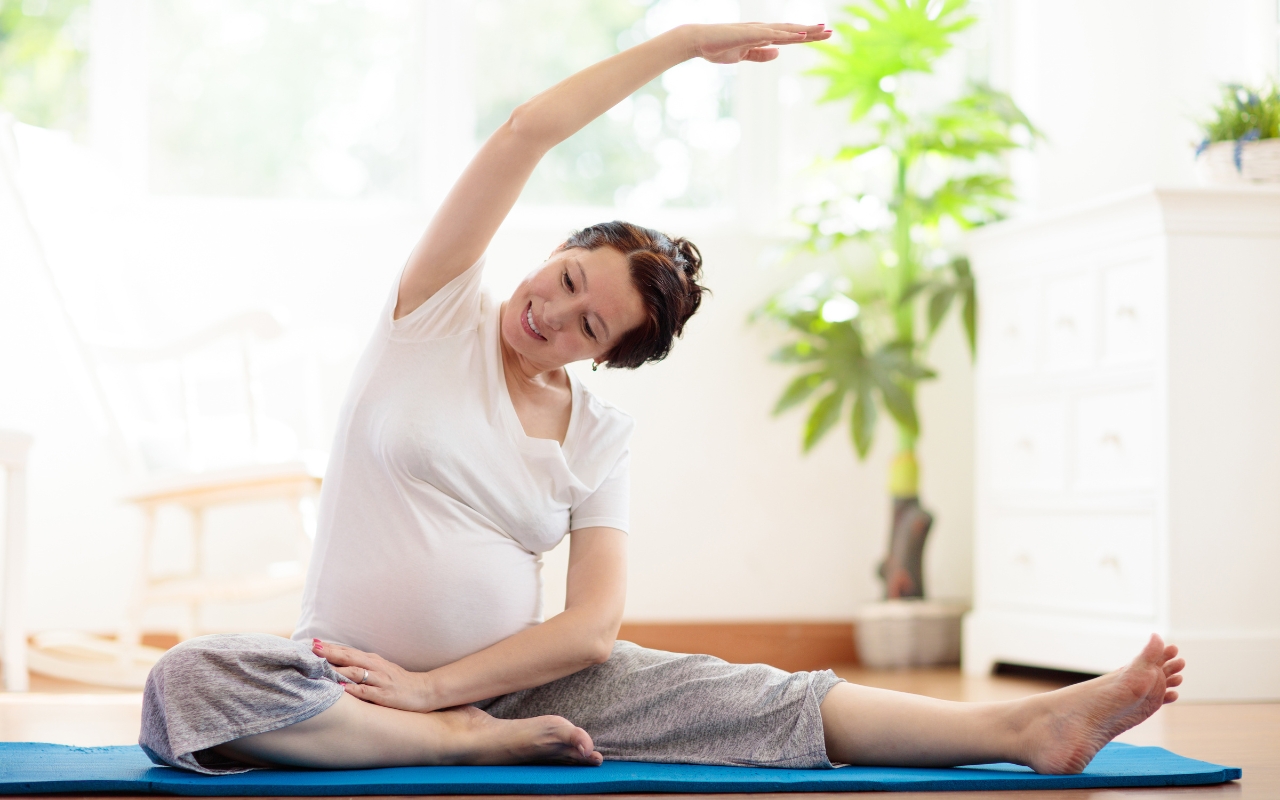Pregnancy is a period of immense transformation, both physically and emotionally. It is an exhilarating time that often inspires women to adopt healthier lifestyles. Maintaining physical activity and a balanced diet becomes crucial, not only for the well-being of the mother but also for the optimal growth and development of the baby. An active and nutritious lifestyle can ease many of the common discomforts of pregnancy, make labor and delivery easier, and even contribute to a quicker postpartum recovery. This comprehensive guide delves into the best practices for staying fit and healthy during pregnancy, addressing exercise routines, nutritional needs, and safety tips to ensure a healthy pregnancy journey.
The Importance of Physical Activity During Pregnancy
Staying active during pregnancy is highly beneficial, not just for the mother but also for the baby. Regular physical activity can help alleviate common pregnancy-related issues such as back pain, constipation, bloating, and swelling. Moreover, it can boost mood, energy levels, and sleep quality, while also improving stamina and muscle strength, which are essential for labor and delivery.
According to the U.S. Department of Health and Human Services, being physically active during pregnancy can also reduce the risk of gestational diabetes, preeclampsia, and postpartum depression. Furthermore, for those who were already active before pregnancy, it is generally safe to continue with their exercise routines, including more vigorous activities like running, as long as they listen to their bodies and modify as necessary.
For those who were not very active before pregnancy, it’s never too late to start. Simple activities like walking, dancing, or even swimming can have significant health benefits. Aim for about 150 minutes of moderate-intensity aerobic activity each week, which can be broken down into more manageable 30-minute sessions across five days.
Safe Exercise Routines
While the benefits of physical activity during pregnancy are well-established, it is crucial to choose exercises that are safe and appropriate for this period. Here are some safe and effective exercise routines for pregnant women:
- Walking: One of the simplest and safest forms of exercise. Walking provides moderate aerobic conditioning with minimal stress on the joints.
- Swimming: A great full-body workout that is gentle on the joints and can help reduce swelling.
- Prenatal Yoga: Helps improve flexibility, strength, and relaxation, which can be beneficial during labor and delivery.
- Pilates: Focuses on strengthening the core muscles, which can help alleviate back pain and improve posture.
It's important to avoid high-risk activities such as contact sports, activities with a high risk of falling (like horseback riding or downhill skiing), and exercises that involve lying flat on the back after the first trimester, as this can restrict blood flow.
Creating a workout plan can help in maintaining consistency. List the activities you enjoy and find suitable times to engage in them, such as during lunch breaks or after dinner. Always stay hydrated, wear supportive shoes, and avoid overheating by exercising in well-ventilated, cool areas.
Nutritional Needs During Pregnancy
A balanced diet is essential during pregnancy to support the growth and development of the baby and to maintain the health of the mother. Proper nutrition helps to gain a healthy amount of weight, which is crucial for the baby’s development and can reduce the risk of complications such as gestational diabetes and high blood pressure.
Key Nutritional Components:
- Folic Acid: Vital for the development of the neural tube. Found in leafy green vegetables, fortified cereals, and orange juice.
- Iron: Supports the increased blood volume and prevents anemia. Foods rich in iron include lean meats, spinach, and legumes. Pairing iron-rich foods with vitamin C helps improve absorption.
- Calcium: Essential for the development of strong bones and teeth in the baby. Dairy products, fortified plant milks, and leafy greens are good sources.
- DHA Omega-3 Fatty Acids: Important for brain and eye development. Can be found in fatty fish like salmon, or in fortified foods and supplements.
- Protein: Supports the growth of fetal tissue, including the brain, and helps with uterine and breast tissue growth. Good sources include lean meats, beans, and dairy products.
Healthy Eating Guidelines:
Following a well-balanced diet that includes a variety of foods from all food groups is essential. Incorporate plenty of fruits and vegetables, whole grains, lean proteins, and healthy fats. Here are some guidelines for maintaining a healthy diet during pregnancy:
- Eat several small meals throughout the day to manage hunger and nausea.
- Stay hydrated by drinking plenty of water.
- Limit caffeine intake.
- Avoid alcohol, raw or undercooked meats and eggs, unpasteurized dairy products, and certain types of fish high in mercury.
For more information on healthy eating during pregnancy, visit the National Institute of Diabetes and Digestive and Kidney Diseases.
The Role of Mental Well-being
Pregnancy is not just a physical journey but an emotional one as well. The hormonal changes, coupled with the anticipation of a new addition to the family, can lead to a range of emotions, from joy to anxiety. Maintaining mental well-being during pregnancy is crucial for both the mother and the baby.
Strategies for Stress Management and Emotional Health:
- Prenatal Yoga and Meditation: These practices can help reduce stress and anxiety, promote relaxation, and improve sleep quality.
- Adequate Rest: Sufficient sleep is crucial. Naps can help if nighttime sleep is disrupted.
- Social Support: Engage with friends, family, or join prenatal groups to share experiences and seek support.
- Professional Support: If feelings of anxiety or depression persist, it is important to speak with a healthcare provider for appropriate support and resources.
Breastfeeding, which utilizes extra calories and provides numerous benefits for both mother and child, can also impact mental well-being positively. It can offer a sense of closeness and bonding, as well as releasing hormones like oxytocin which promote relaxation and emotional well-being.
Postpartum Fitness and Nutrition
The journey doesn't end at childbirth. Postpartum recovery and returning to fitness should be approached with patience and care. The body undergoes significant changes during pregnancy and needs time to heal after delivery.
Postpartum Exercise:
After childbirth, it is advisable to start with low-impact activities and gradually increase the intensity. Many women can begin engaging in light activities, such as walking or gentle stretching, a week or two after delivery. Always consult a healthcare provider before starting any exercise routine, especially if there were complications during delivery.
- Pelvic Floor Exercises: These are essential to strengthen the pelvic muscles and reduce the risk of postpartum complications such as incontinence.
- Gentle Yoga and Stretching: Helps to ease back into an exercise routine, improve flexibility, and promote relaxation.
- Walking: A simple and effective way to begin getting active again.
Postpartum Nutrition:
Nutrition continues to play a crucial role postpartum, especially if breastfeeding. A well-balanced diet helps in recovery, maintaining energy levels, and providing adequate nutrients for breast milk production.
- Stay Hydrated: Essential for milk production and overall health.
- Balanced Meals: Continue to eat a variety of foods from all food groups to ensure a good supply of nutrients.
- Additional Calories: Breastfeeding mothers need about 500 extra calories per day to meet the energy demands of milk production.
For detailed information on postpartum nutrition and fitness, consult resources like the National Institute of Diabetes and Digestive and Kidney Diseases.
Conclusion
Staying fit and healthy during pregnancy is achievable and beneficial for both the mother and the baby. By incorporating regular physical activity, following a balanced diet, and taking care of mental well-being, women can enjoy a healthier pregnancy, easier labor, and quicker postpartum recovery. Always consult healthcare providers for personalized advice and support throughout the journey. Embrace the changes, stay active, eat well, and cherish this transformative time in life.










